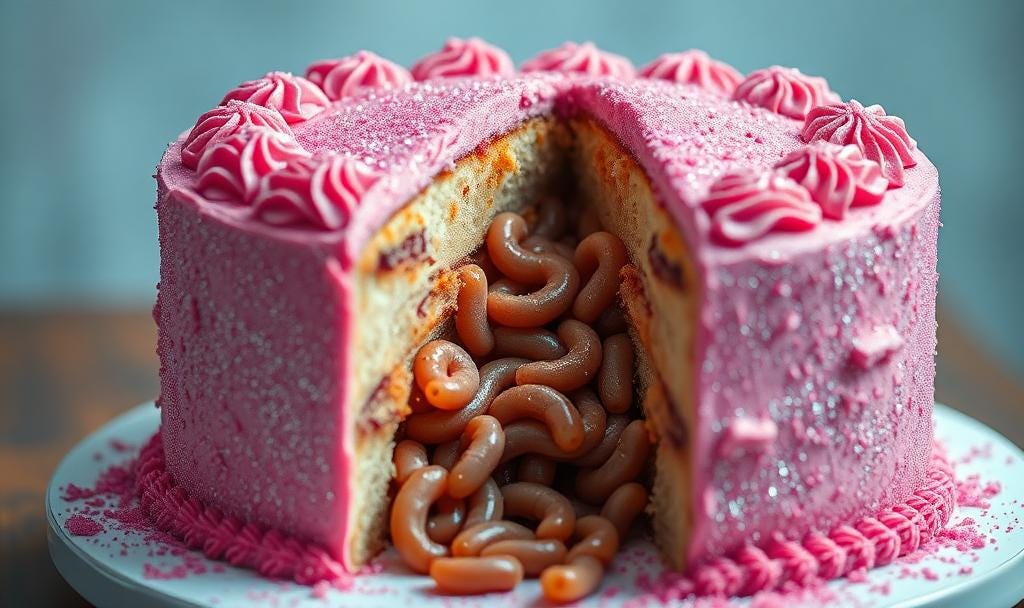The difference between nice & safe
Learning to recognise real emotional safety in relationships
I used to be drawn to people who seemed kind, attentive, or even charming, only to later realise they weren’t actually safe for me. On the surface, they looked caring. They said the right things. They made me laugh. I felt seen, appreciated, maybe even a spark of excitement, but then the cracks appeared. Words didn’t match actions. Promises slipped. Boundaries were crossed and suddenly, I left questioning myself: Did I imagine the connection? Was it all my fault?
Starving for love
For someone like me, who grew up in a home where love was inconsistent, that confusion feels painfully familiar. We said it all the time (think: the Beckhams on Instagram signing off every post with “Love you x x ”), but the words weren’t backed up by consistent actions. Part of me leans in, hungry for the validation I didn’t always get as a child. Another part of me feels the sting of disappointment when the connection doesn’t hold. It’s a push-pull that triggers my inner child—the part that learned early on that attention often came with strings attached.
Without safe connection, that inner child feels like they don’t exist at all
Almost like they’re disappearing into the background, fading until no one notices them. That invisible feeling is a form of abandonment anxiety: the sense that love is conditional, unpredictable, or that they themselves aren’t enough to be seen or kept safe. As a child, I coped by freezing, fawning, or creating fantasy bonds—trying to fix it, control it, or make it real in my head because at least then it felt like I had some say in whether I was loved. In fact, I would spend a lot of time in my head or in books.
Being in a connection that seems “nice” but isn’t truly safe is a lot like doing a trapeze catch off a high building without a safety harness. It might feel exhilarating in the moment—the wind in your hair, the rush of adrenaline—but the risk of falling is real. And the higher the expectation, the harder the crash. Nice without safety excites the nervous system, but it doesn’t nourish it.
The adult self can notice the thrill without getting swept up in it. By setting boundaries and choosing relationships that actually nourish the nervous system, we protect the inner child and create real safety. It’s connection that feels alive, steady, and sustaining, rather than conditional or unpredictable.
Without awareness, your inner child is stuck on an emotional rollercoaster that they feel powerless to stop—up, down, spinning, heart racing, unsure when the next drop will come. That’s why it’s so important to learn the difference between someone being “nice” and someone being “safe.”
What “nice” really looks like
Compliments, charm and warm words (it’s shallow and empty)
Big shows of care that aren’t backed up by consistency
Excitement or chemistry that feels hard to resist (that’s your nervous system on fire!)
Vulnerability that draws you in but doesn’t come with accountability
What “safe” actually looks like
Consistency over time. You don’t have to wonder if they’ll show up
Words and actions that match (congruency)
Clear, kind communication that doesn’t leave you guessing
Respect for your boundaries and their own
A feeling of calm, not just excitement
Safety doesn’t require perfection. It requires repair. Safe people aren’t immune to hurting you, but they care enough to own it. To listen without defensiveness. To try again with more care. That doesn’t mean they always get it right the second time, either. But they stay in the process. They value the connection enough to do the uncomfortable work of facing themselves. When someone consistently takes accountability, your nervous system learns something powerful: that conflict doesn’t have to mean danger. It can also mean deepening trust. —
Everyday examples of “nice but unsafe” people
Parents who are loving one minute but withdraw, criticise, or explode the next. You never know if showing your true self will earn approval or anger.
Bosses who praise your work and are friendly, but fail to communicate clearly, shift expectations without warning, or make promises they don’t keep.
Colleagues who joke and compliment you but gossip behind your back or undermine your efforts when it suits them.
Friends who seem supportive and fun, but repeatedly let you down, overstep boundaries, or are only present when it’s convenient.
All of these relationships feel “nice” on the surface because they bring connection, attention, and validation, but underneath, they keep your nervous system on high alert. The inner child learns to freeze, fawn, or build fantasy bonds to manage the unpredictability. It feels exhilarating and comforting in the moment, but it doesn’t create real safety.
When you notice the difference, everything changes. Safe people don’t just make you feel good in the moment. They allow your nervous system to relax. They create a steady fire that warms you through the winters, not just a spark that flares and disappears.
Why this matters for your inner child
If you grew up with unreliable love, you might unconsciously seek out people who recreate that push-pull pattern. It feels familiar, even when it’s painful. Each time someone leaves you hanging, you hear the whisper of that old inner voice: I’m not important enough. I have to earn love.
You don’t need to earn basic respect, attention, or care. Safe people make things clear without you having to extract it from them. They take responsibility for themselves. They don’t leave you doing the emotional labour for both of you.
Protecting yourself
The best protection isn’t a shield; it’s clarity. Remind yourself: If someone is … unreliable, they’re not for me. If someone is … dishonest, they’re not for me. If someone is … disrespectful, they’re not for me. If someone isn’t … accountable, they’re not for me. If someone leaves me … anxious, they’re not for me. If someone leaves me … diminished, they’re not for me. If someone leaves me … confused, they’re not for me.
Clear is kind. Confusing is unkind. You deserve safe love, not just “nice” moments that leave you questioning yourself.
You’ll know the difference when your body feels calm, not chaotic. When you can trust their words to match their actions. When you don’t have to shrink, over-give, or second-guess yourself to keep the connection alive.
Quick steps to protect yourself
Pause before engaging with someone who makes you feel unsettled.
Ask yourself: Am I chasing excitement because it’s safe or because it’s familiar in its instability?
Notice your nervous system: are you calm, or is your stomach tight and chest racing?
Check consistency: do their words match their actions over time?
Name your boundaries clearly and observe how they respond. Safe people respect them without drama.
Reflect on your inner child: which old patterns are being triggered, and what do you need to feel secure?
I love this note from
which brings out attention away from the drama and back to our body.✍️. Reflective journal prompts
When was the last time someone made you feel seen and safe? What did they do differently from someone who was “nice but unsafe”?
How do you usually respond to charming but unreliable people? What patterns show up?
What are three clear boundaries you want to uphold in future connections?
What does “safe attention” feel like for you? How can you create that for yourself?
Breaking free from unreliable or unsafe dynamics isn’t about fixing anyone else—it’s about giving your inner child the safety they never had and acting from your adult self. You deserve clarity, consistency, and calm.
I’m here if you want to talk it through one-on-one.
👉🏻 Book a session here.
Love
PS. If any of this love letter spoke to you, tap the little heart up top or down below. It helps other lost sensitives find their way back to themselves. The more people who know I’m here, the easier it is for the right ones to find me. Thank you!





Ooh, this resonates so much with me! I've definitely assumed that 'nice' people are safe, only to find out they are often a 'wolf' in 'sheep's clothing'. It's a devastating feeling to discover that someone who you thought liked you and was kind and understanding is really just using you or has no interest in the authentic you (the only want to be around when you're showing signs of happiness of contentment, and aren't interested in your 'difficult' emotions).